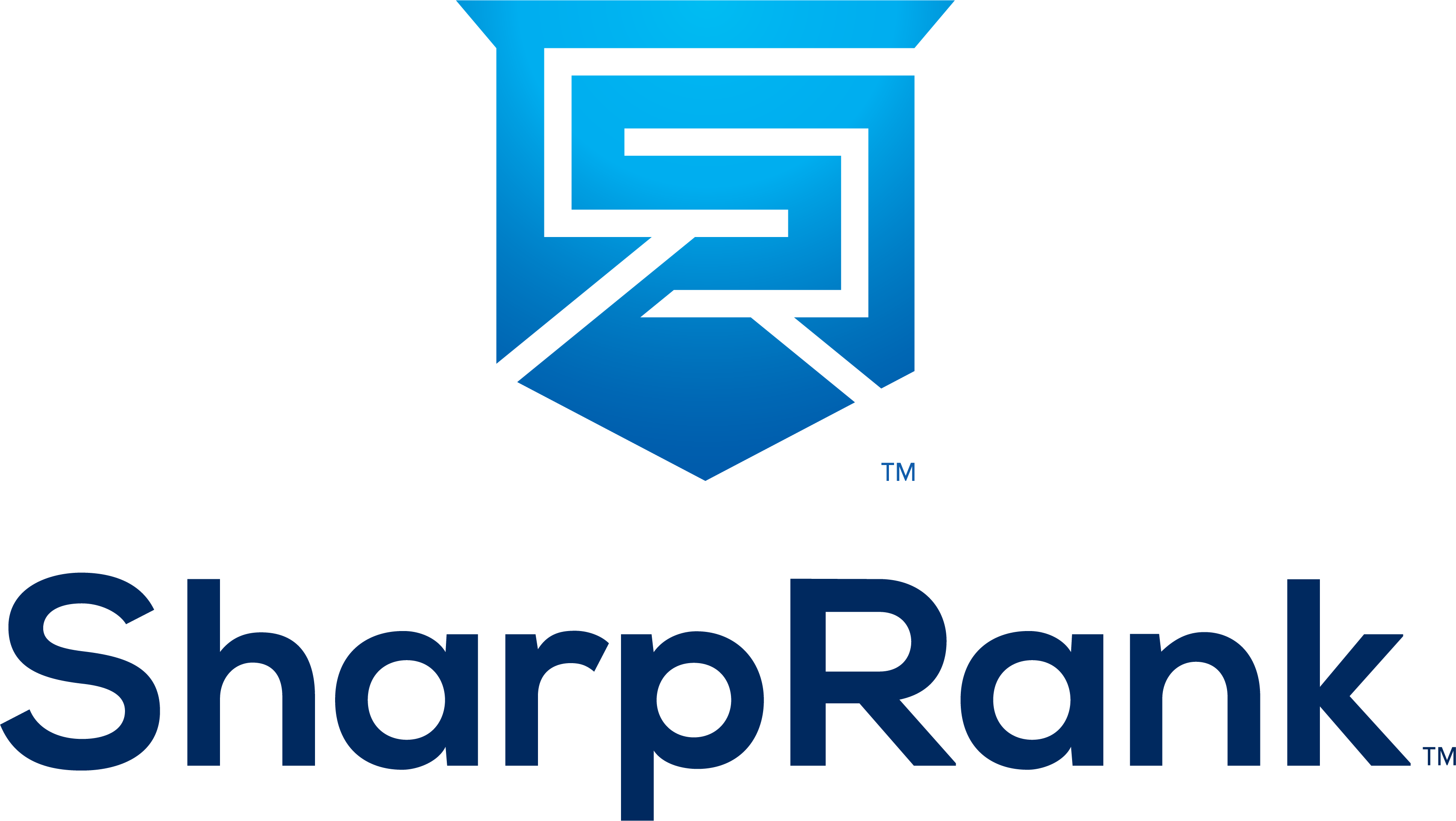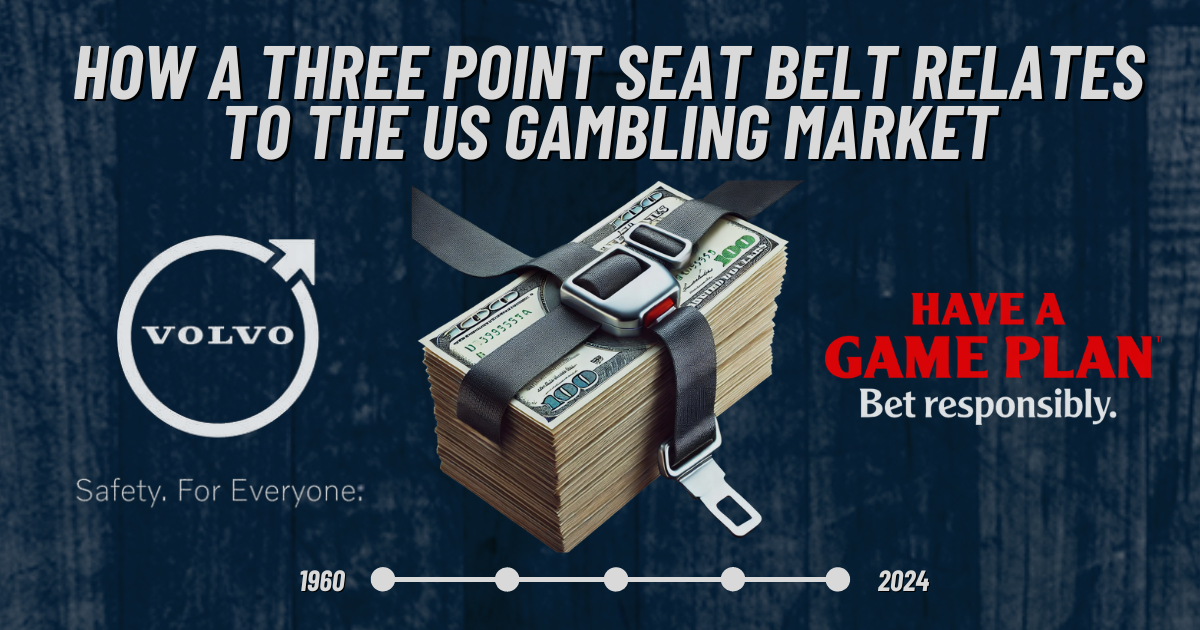How A Three Point Seat Belt Relates To The US Gambling Market
The US gambling market is booming, but is it prioritizing player safety?
Here’s a fun thought experiment/word association game. Everyone close your eyes. Wait, not sure how the rest of this would work. Okay, let’s start over – no need to close your eyes.
What is the first word that comes to mind when you hear the company name, Volvo?
Now pick any sportsbook you want and what is the first word that comes to mind when you hear that company’s name?
Hear that collective “Uh-oh”? That’s the sound of those who work in or with the gaming industry realizing “Safety” “Consumer protection” or any variation were not in the top ten words associated with the latter..
Here’s How Volvo Did It
There is no smoke and mirrors or magician routine to explain how “safety” was likely the first word that came to mind for Volvo. This was a deliberate effort by the company revolving around the three point seatbelt – a tangible action that had measurable results.
Despite having a patent on its three point seatbelt, Volvo decided to share the feature with competitors for the collective good. A rising tide raises all ships. Before regulation required this feature, Volvo was constantly applying pressure to install such a safety feature. It was not empty words, it was backed by meaningful action. There was a problem, a serious one involving safety and consumer protection and Volvo had a solution.
The Advantages Of Going First
Volvo’s proactive adoption of seatbelts in the early 1960s provided several key advantages:
Safety Reputation: By being one of the first manufacturers to emphasize safety features like seatbelts, Volvo established itself as a leader in automotive safety. This reputation helped differentiate the brand in a competitive market.
Customer Trust and Loyalty: Consumers began to associate Volvo with safety, which fostered trust and loyalty. Families, in particular, gravitated toward a brand that prioritized the well-being of its passengers. Volvo’s commitment to safety set it apart from competitors who were slower to adopt similar features. This differentiation attracted a specific customer segment focused on safety and reliability.
Regulatory Influence: By advocating for safety measures, Volvo positioned itself as a thought leader in the automotive industry. This helped the company influence safety regulations and standards, benefiting the broader industry while reinforcing its own safety initiatives.
Innovation Image: Adopting seatbelts early showcased Volvo’s commitment to innovation, encouraging the perception that the company was forward-thinking and dedicated to improving vehicle technology.
Overall, Volvo’s proactive approach to seatbelt adoption not only enhanced its brand image but also contributed positively to public safety and the automotive industry as a whole.
Lessons For the Sportsbook?
When the Professional Amateur Sports Betting Act was repealed, “bet responsibly” was adopted quickly by many sportsbooks. For the first couple years of the US adoption of sports wagering, in its various forms, there were only so many options for innovative approaches to consumer protection/safety/etc.
Here’s another quick check: What exactly does “bet responsibly” mean? It is safe to assume, no two people will have the exact same answer. Consumer fragmentation creates opportunity for market participants, if (and ONLY if) they are willing to stand contrarian on the side of safety. It’s a dangerous gamble but…
Dare To Be Different
Voluntary measures turn into requirements and the proactive innovators create a competitive moat for themselves. It has been well documented that innovation or risk taking that fails on the side of safety, consumer protection, etc. can often be overcome and used as a stepping stone to success. It is very well received.
When that threshold is crossed and checking the box turns to mandates, there are some very uncomfortable conversations that are had.
The problem gambling and responsible gaming initiatives continue to be highly touted, focus points for the sportsbooks. While language is important, it is just language. There are plenty of solutions out there now for sportsbooks and other stakeholders to try/adopt and innovate on, that did not exist five years ago.
Many consumers, if they are aware of these efforts at all, feel they are just a check the box exercise. And yet, history suggests the pendulum swings back the other way, if there is not meaningful action behind those promises.
To be fair, they are trying or at least appear to be. But until “safety” or “consumer protection” makes it to the top three of words associated, it will continue to just be shouting into a void.
Pretty simple pattern construction: industries that proactively implement consumer protection measures often shape their regulatory landscapes. Those that don’t usually end up scrambling to comply with unexpected rules.
Market players that promote such proactivity, tend to get rewarded. Those that do not, tend to have a “wave” crash on their heads.
That is the opportunity that sits in front of sports betting and its stakeholders right now.
More from SharpRank…
Click here to read this week’s SCALER.
US Sports Betting: Share Buybacks and Game Theory



